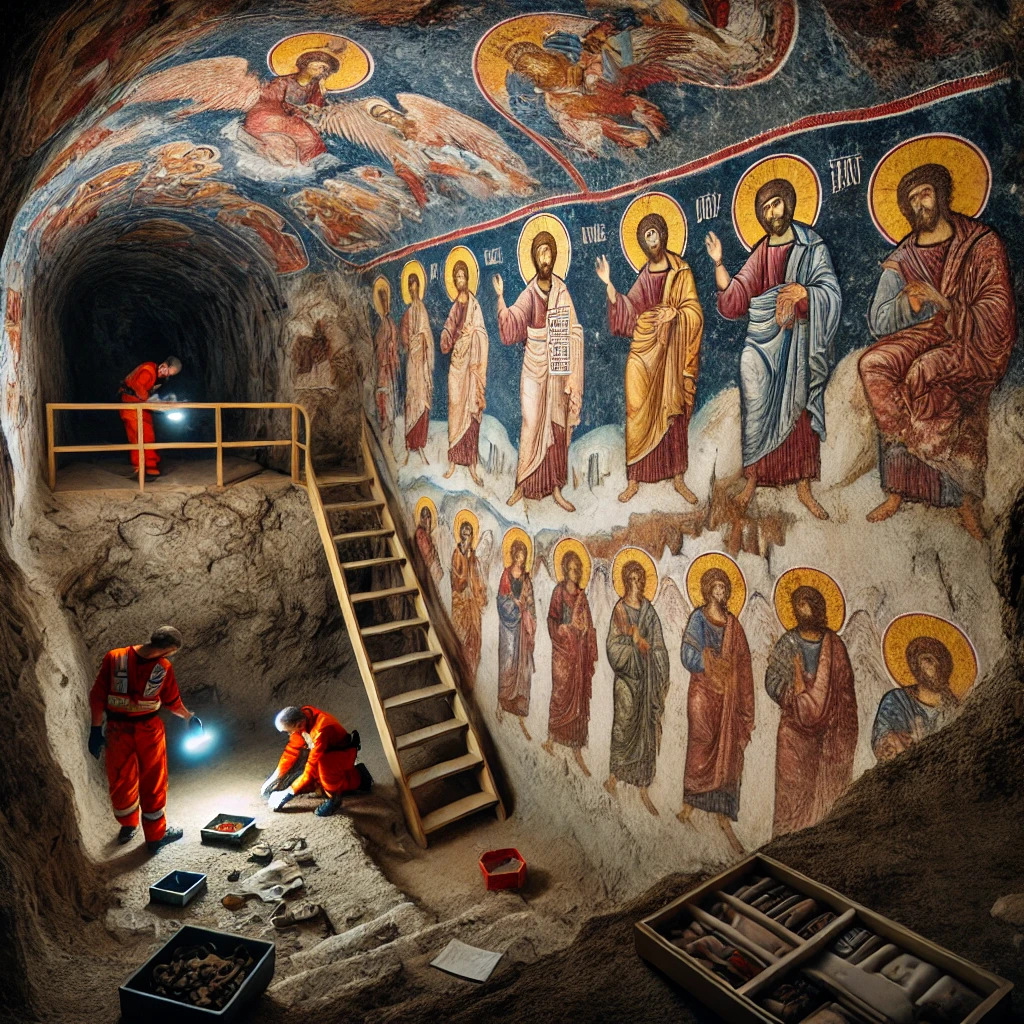Antalya, Turkey — In an extraordinary discovery, archaeologists have uncovered vibrant Christian frescoes in an ancient cave monastery nestled in the Taurus Mountains of southern Turkey. These frescoes, believed to date back to the 7th century, depict intricate scenes from the life of Christ, including the Ascension, the miracles of Jesus, and early depictions of saints and angels.
The monastery, hidden for centuries under layers of sediment and soot, is thought to have been a key spiritual center during the Byzantine era. Its location, in a region historically fraught with conflict, suggests that the frescoes were intentionally concealed to protect them from destruction during invasions.

“This discovery is a treasure for Byzantine art and Christian history,” said Dr. Mehmet Kaya, a prominent art historian specializing in early Christianity. “The vivid colors and meticulous details of the frescoes highlight the spiritual and artistic significance of this monastery.”
The frescoes include inscriptions in Greek, offering clues about the liturgical practices of the time. Alongside the frescoes, researchers uncovered fragments of manuscripts, pottery, and tools that provide insight into the daily lives of the monks who lived there.
The Turkish government has announced plans to restore the site and open it as a cultural heritage destination. Local communities are also preparing for an influx of visitors eager to witness this remarkable chapter of Christian history.

